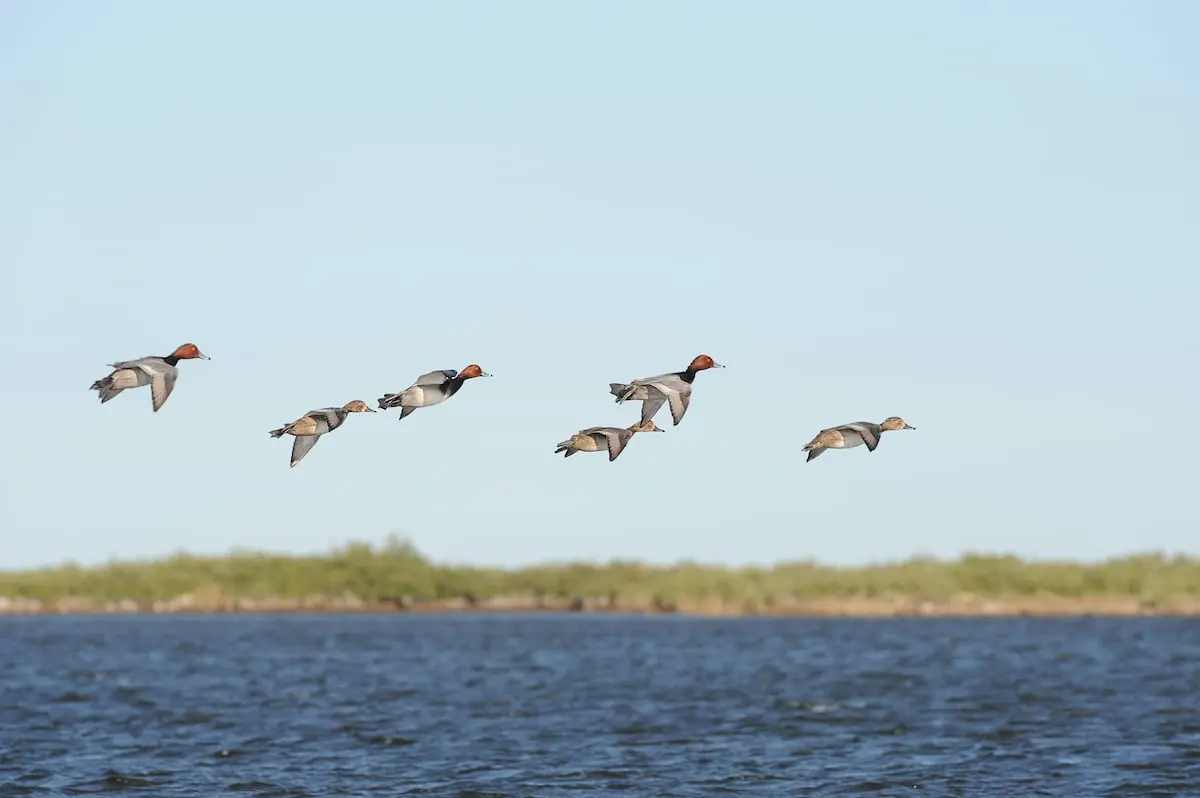Story from Owen Fitzsimmons and Kevin Kraai, Small Game Program/TPWD
It seems that even our wildlife aren’t immune to the effects of the COVID-19 pandemic. As the nation adheres to social distancing and stay-at-home orders, state and federal wildlife agencies are being forced to make tough decisions regarding how, or even if, to carry out important annual monitoring efforts. Most current migratory game bird harvest strategies rely on annual monitoring to make accurate regulatory and management decisions. Consequently, the U.S. Fish and Wildlife Service (USFWS), along with state partners, are facing the unprecedented task of having to devise alternative approaches for the 2021-2022 season without this critical information. No one is sure how long social distancing measures will persist in the U.S., but already surveys have been cancelled or modified.
As of this month, operations impacted, or scheduled, include:
- The Coordinated Spring Survey of the mid-continent population (MCP) of sandhill cranes, scheduled for the 3rd week of March, was cancelled this year. This survey is the sole source of population information for the MCP, which consists of around 1 million cranes that primarily winter in Texas. The management strategy for MCP cranes relies on a 3-year running average of estimated abundance to inform regulatory decisions so, the USFWS and Flyways (administrative bodies established to facilitate management of migratory birds and their habitats) will have to come up with and agree to an alternative approach this year.
Sandhill crane surveys, scheduled for March, were cancelled this year due to the ongoing COVID-19 pandemic.
Impacts and scheduled activities continued:
- The national Mourning Dove Harvest Strategy primarily relies on data collected in late summer and during the hunting season. No impacts are expected, though it is possible that the national banding program, which begins in July, could be affected if social distancing orders persist into the summer. At the state level, TPWD has conducted annual, statewide dove surveys to estimate breeding populations for well over a decade. These surveys have been cancelled but are not critical to the national harvest strategy and will not affect the regulatory cycle.
- Singing Ground Surveys (SGS), the breeding season surveys for American Woodcock, are typically conducted in late April and early May in several core breeding-range states in the northern U.S. and southern Canada. As of now it is unclear if, or to what extent, these surveys are being impacted in the U.S., but all Canadian SGS have been cancelled. The now-incomplete coverage of SGS across the core breeding range will likely force the Flyways to take an alternative approach to making regulatory decisions this year.
- A variety of annual surveys are conducted on breeding, staging, and wintering areas for geese. Spring survey data is analyzed using multi-year running averages for many species (e.g., cranes) to inform regulations. Therefore, one year of missing data should not have major implications for harvest strategies. However, the Canadian Wildlife Service has cancelled all field work in the Arctic and sub-Arctic for the summer, including goose research and banding. Some of the Arctic field sites have been operational for over 30 years.
Work stoppages and slowdowns risk cancelling the Waterfowl Breeding Population and Habitat Survey, which would be the first time that has happened since 1955.
Impacts and scheduled activities continued:
The most significant implications of reduced monitoring efforts will likely be for ducks, specifically:
- The Waterfowl Breeding Population and Habitat Survey (May Survey), conducted across the prairie-pothole region, boreal forest, and much of Alaska, is currently in jeopardy of not being flown for the first time since 1955. Canada and Alaska have already canceled their portion of that survey. It is looking likely that regulatory decisions for the 2021-2022 waterfowl seasons will rely on modeling exercises to help make the best decisions.
- The annual West Gulf Coast Mottled Duck breeding survey, conducted by TPWD and the Louisiana Department of Wildlife and Fisheries, has been cancelled. Currently, it is the only survey designed specifically to estimate mottled duck abundance and trends in Texas and Louisiana which began in 2009.
- In addition, summer duck banding on their breeding grounds is under evaluation, with some of the most northern banding stations already cancelled in Canada for the year.
We are facing unprecedented challenges, not just in migratory game bird management, but in our daily lives as well. The situation is ever evolving, but if social distancing orders persist into the summer more monitoring and management efforts will likely be impacted. The TPWD Small Game Program remains committed to working with agency staff and partners to find alternative solutions to these challenges.


